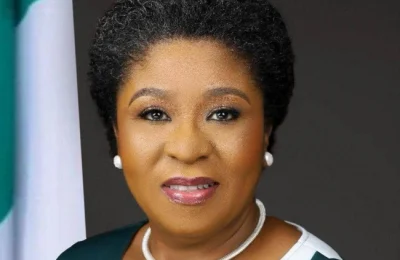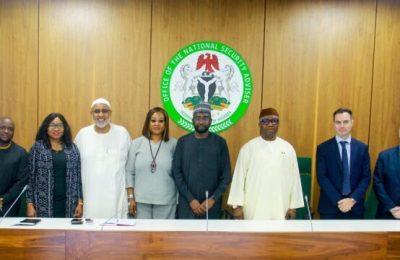In times past, Nigerian leaders were fond of snubbing the local media and travelling abroad to break very important news stories that qualify as “world exclusives” to foreign media. Some put this down as a factor of the colonial mentality still ravaging African leaders centuries after the slave trade and decades after these countries had obtained what is derisively referred to as “flag independence” from their colonial masters. Inferiority complex, mental slavery, which the Jamaican reggae artiste, Bob Marley, had counselled those leaders to emancipate themselves from, or what radical African scholars term as the decolonisation of the mind which, if left unattended to, is worse than the physical seizure of African lands and peoples, were said to have been responsible for the servile disposition of African leaders to their foreign counterparts. They grovel, genuflect and see great honour in whatever scant recognition that is accorded them by “white skins” even at great cost to their countries and peoples. Remember Frantz Fanon’s “Black skin, White masks”! They and their people are robbed, pillaged, run ragged and left poor and dishevelled; yet, they count it as great honour and privilege, such that Felix Houphouet-Boigny, one-time sit-tight president of Ivory Coast (now Cote d’Ivoire) fawningly enthused of France, the erstwhile colonial master, thus: “Home is where, when you go there, they take you in”!
Another reason given for the penchant of our leaders to this way cut their nose to spite their face is the so-called “no-love-lost” relationship between media and government. Contrary to the nebulous term of “partners in progress” often employed, most times deceptively, to describe government-media relationship, they operate, and fittingly so, as adversaries. This is historical, judging by the role the Nigerian media, even in its fledgling state under colonial rule, had assigned itself as the vanguard of the movement for Independence. And just as the African leaders who stepped into the shoes of the departing colonial masters changed little of the colonial government’s instruments of oppression, so also did the adversarial disposition of the media change little. Unfortunately, many of those early African leaders were leading lights of the crusading media men of the colonial era! As for the media, their suspicion of government could not have been otherwise because of the very important role of a “watch-dog” assigned it under the new dispensation. A watch dog that parleys with the person or organisation he is assigned to watch and keep within limits cannot but compromise and fail to discharge its onerous responsibilities. Holding government accountable to the people, where government is unruly and unwilling to be so held, demands an adversarial, and not a compromised watch dog.
Where government, however, is alive to its duties and responsibilities and the media act professionally, both government and media can enjoy a mutually-beneficial relationship where the media discharges its duties without let or hindrance and without fear or favour while the government is thus helped in discharging its own duties to the citizenry in the interest of, and for the benefit of all, the media’s inclusive. We are far away from approaching that threshold in Nigeria. Decades of military rule did nothing to move us near it; if anything, the “Man on Horseback”, as Samuel Finer described them, instead of being the modernisation force they pretended to be, showed themselves more as the wanton troopers Mogwugo Okoye lampooned in “Storms on the Niger”. They wasted the country’s resources on frivolities (Yakubu Gowon); destroyed the civil service (Murtala Muhammed); handed the country over to an inept and corrupt civilian administration (Olusegun Obasanjo); brutalised our psyche with draconian and retroactive laws (Muhammadu Buhari), institutionalized corruption and the settlement syndrome (Ibrahim Babangida), and capping it all with a reign of terror, killing and maiming and stealing the country blind by the vilest of them all (Sani Abacha). Perhaps, the short period of civilian rule in the First Republic before the first military coup of January 1966 was not enough for the civil authorities headed by Tafawa Balewa to execute any of Samuel P. Huntington’s recommendations in “The soldier and the State” of objective or subjective control of the military or that the Balewa government was totally inept and distracted, applying itself to the destructive politics of containing a perceived political enemy (Obafemi Awolowo) instead of reining in a band of restive and politically-indoctrinated military officers led by Major Chukwuma Kaduna Nzeogwu. Well, that is a topic for another day!

The question I seek answers to here today is why Asiwaju Bola Ahmed Tinubu, the presidential candidate of the ruling All Progressives Congress (APC), goes to Abeokuta, the Ogun State capital, each time he primes himself up to drop a bombshell. Is this deliberate or is it a mere coincidence? The first time Tinubu dropped a bombshell was in June last year during his campaign for the presidential ticket of the APC. Everything appeared not working well for him. President Muhammadu Buhari was rumoured not to be in his corner. His political protégé and sitting vice-president, Yemi Osinbajo, was dragging the flag with him; and even the governor of Ogun state that Tinubu was said to have been instrumental in enthroning, was said to be playing boju-boju (hide-and-seek) with the Jagaban. On that occasion, Tinubu dropped three quick bombs at the city of Olumo rock. The first was his dramatic description of how Buhari contested election to be president thrice but on each occasion failed until he, Tinubu, came to the rescue with the APC alliance that his political ingenuity and sagacity helped to cobble together. Speaking in Yoruba, Tinubu said of Buhari’s foray into politics: Eekini, o lu’le. Eekeji, o lu’le. Eeketa, o lu’le. The second was Tinubu’s audacious, even if desperate declaration that based on the gentleman’s agreement he had not just with Buhari but with the entire APC political leadership, it was his (Tinubu’s) turn to be supported to have a shot at the presidency. Emi l’o kan: It is my turn, he said without mincing words and also without minding whose ox was gored. The third was the broadsides he fired at the Ogun State governor, Dapo Abiodun, whom he derogatorily and derisively referred to as “eleyi” meaning, “this one” In Yoruba, it means something or someone inconsequential and of little or no worth whatsoever; someone misbehaving and not measuring up to expectations. Tinubu’s ire was fired by the perceived sitting on the fence of Abiodun, even his scantily-concealed hobnobbing with Osinbajo, despite Tinubu’s publicly-declared “life ambition” to be president.
Many had concluded that, that was the end of the road for Tinubu and his life ambition; that Buhari and the Buharists would move to deny him the APC flag, and that his Abeokuta outbursts were the last kicks of a dying political horse. But to the surprise of many and the consternation and frustration of his political foes, Tinubu coasted to landslide victory at the party primaries weeks thereafter in Abuja. The rest, as they say, is history. Suffice it to say, however, that the iconic statements made at Abeokuta by Tinubu have entered into our political lexicon: “Emi l’o kan” is one. There are many platforms now on social media bearing the name “Emi lo kan”, “Awa lo kan”, “Yoruba lo kan”, “Obi lo kan”, “Ibo lo kan” and “Youth lo kan”. “O lule” is also a creation of Tinubu’s Abeokuta statement that is trending like wild fire in the harmattan season. “Eleyi” has become an alias of the Ogun state governor. At a political rally in Ekiti state on 14 June, 2022, the then Gov. Kayode Fayemi introduced Gov. Abiodun as the “Eleyi of Ogun State”!
Last week, Tinubu returned to the same Abeokuta to make another audacious statement. He railed at fuel scarcity, which is firing up the cost of virtually everything and making life hellish for Nigerians. Tinubu alleged that some people must be hoarding fuel to scuttle the looming election. Who can these be and why is his ruling APC government unable – or unwilling – to arrest the situation? What conspiracy theories are we up against here? Tinubu also alleged that the CBN currency change aims at scuttling the same election and denying him (Tinubu) of victory. Now, before any election, governments usually conduct their own surveys to have an idea where the pendulum may swing. Such surveys are usually more reliable than the sponsored opinion surveys most of which are usually politically-motivated and tailored to deliver preconceived conclusions. Tinubu, I understand, also commissions such surveys to advise him on whom to support, especially in gubernatorial contests in the South-west, and those who claim to know say such surveys, usually kept secret, were generally accurate with their predictions. Has Tinubu done similarly in his own cause? What result has he got: Favourable or unfavourable? Could that be what informed his last week’s audacious statement again at Abeokuta?
Is there a grand design against Tinubu? His Abeokuta statement seems to suggest so; this could be surprising to the uninitiated but not so to those familiar with the subterranean undercurrents of our politics, Tinubu’s enemies are seen by many as the members of his own house (APC). When President Buhari incessantly asks Nigerians to vote for the party and candidate of their choice, what does that indicate? Was that how he, Buhari, was campaigned for in 2015 and 2019 by Tinubu and other party leaders? When Buhari backs CBN Gov. Godwin Emefiele’s virtual grounding of the economy ostensibly to starve some politicians of funds, ask the out-going president how his own elections were financed in 2015 and 2019. Buhari is acting like a man who climbed to the top with a ladder and thereafter removed and burnt the ladder. It is not altruism or patriotism that propel such fellows; they are simply sadists and the Yoruba k’eni ma ni and alai-moore enia!

Outspoken and brutally-frank Prof. Itse Sagay, chairman of the Presidential Advisory Committee Against Corruption, appears to agree with Tinubu’s charge of sabotage when he said: “I suspect that because when people in responsible positions begin to create hardship and annoyance and anger in the population, which will be directed against the government, just before an election, the effect of that is that the government is going to be blamed by the voters and they may decide out of anger to vote for another party. It will drive away votes from the ruling party, which they will blame for the conditions and circumstances being created by these very dangerous people.
“What Emefiele is trying to do in saying you cannot use the existing currency after the 31st of January in a situation where the new currency is not available to be used is a plot to create disaffection for the government and indirectly create an unfavourable image for that government before the populace in a few weeks to an election. There is no question about that. What is surprising is that no one is stopping him. The president has not stopped him and he is saying there is no going back on an action which is a sabotage of the goodwill of that government. It is just incredible.
“On fuel scarcity, I can’t understand it. It has never happened before. This is going to be three months now and the NNPC is saying there is no shortage; (that) they have enough supply for another three months. Yet, we cannot find petrol anywhere. Somebody is playing a game. I suspect after the election, we are going to have petrol. I agree with what Tinubu is saying. Something underhand is going on in this country which is intended to affect the outcome of the election”.
It is like they are already manipulating, affecting, rigging and determining the outcome of the election ever before we go to the poll! In all of these, however, I will continue to watch with keen interest, oil my pen, and keep my gunpowder dry!
ALSO READ FROM NIGERIAN TRIBUNE







